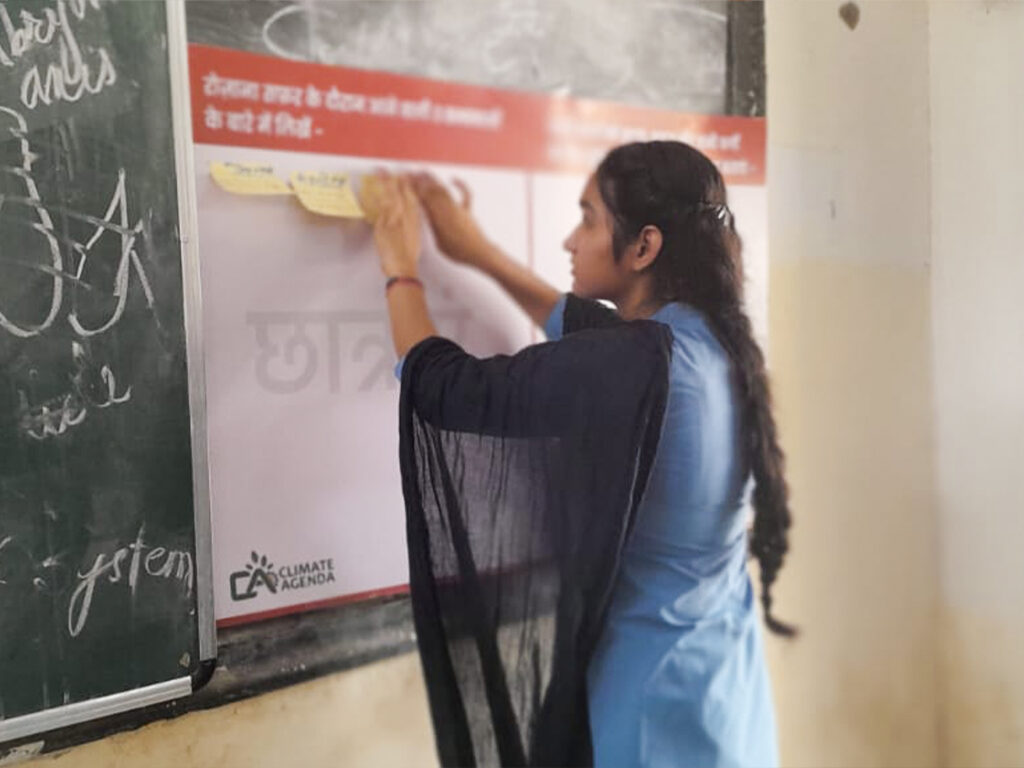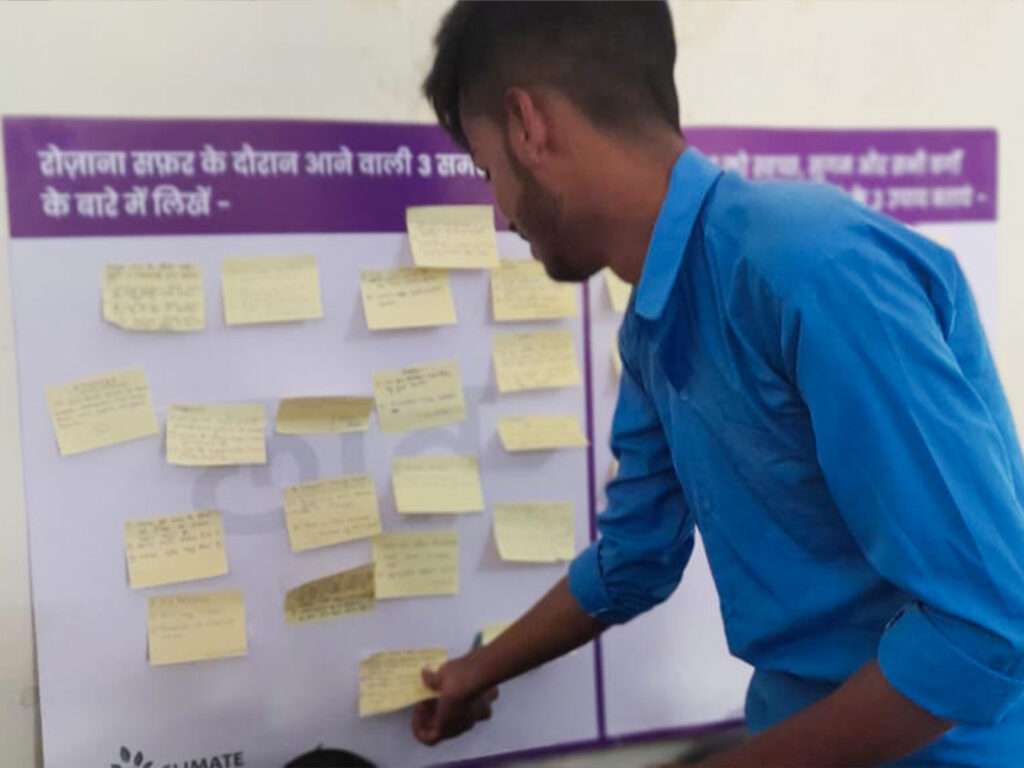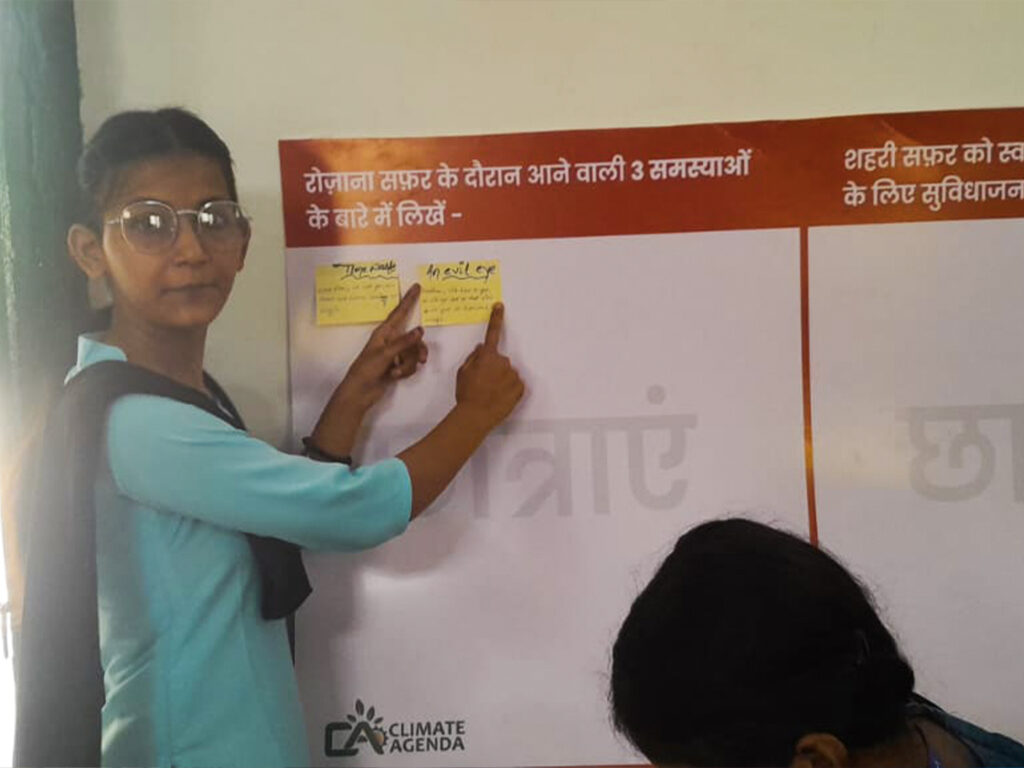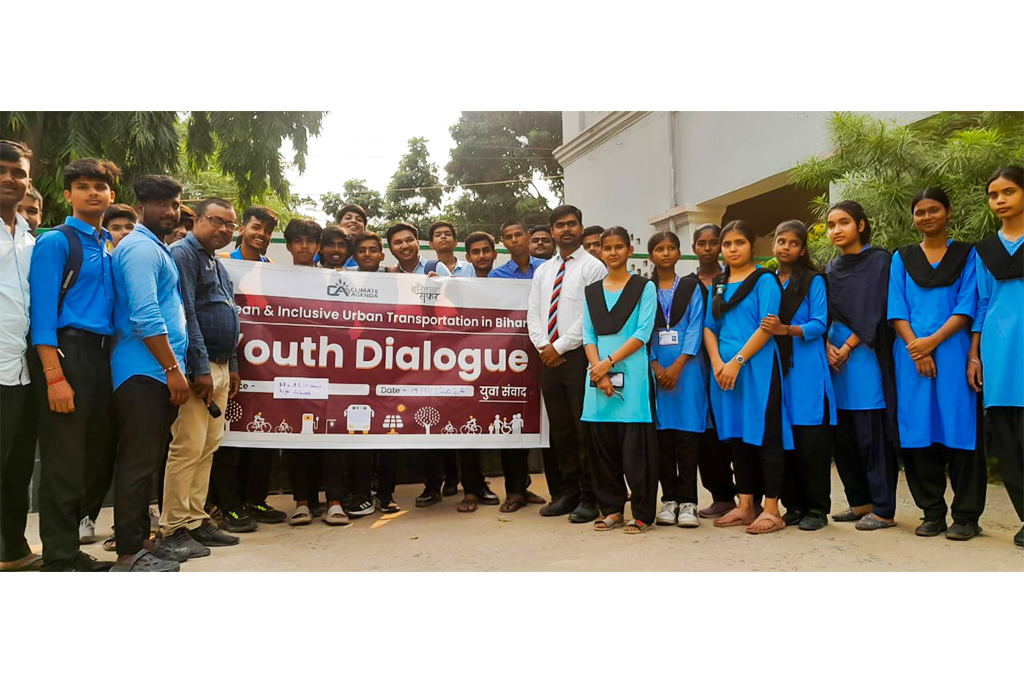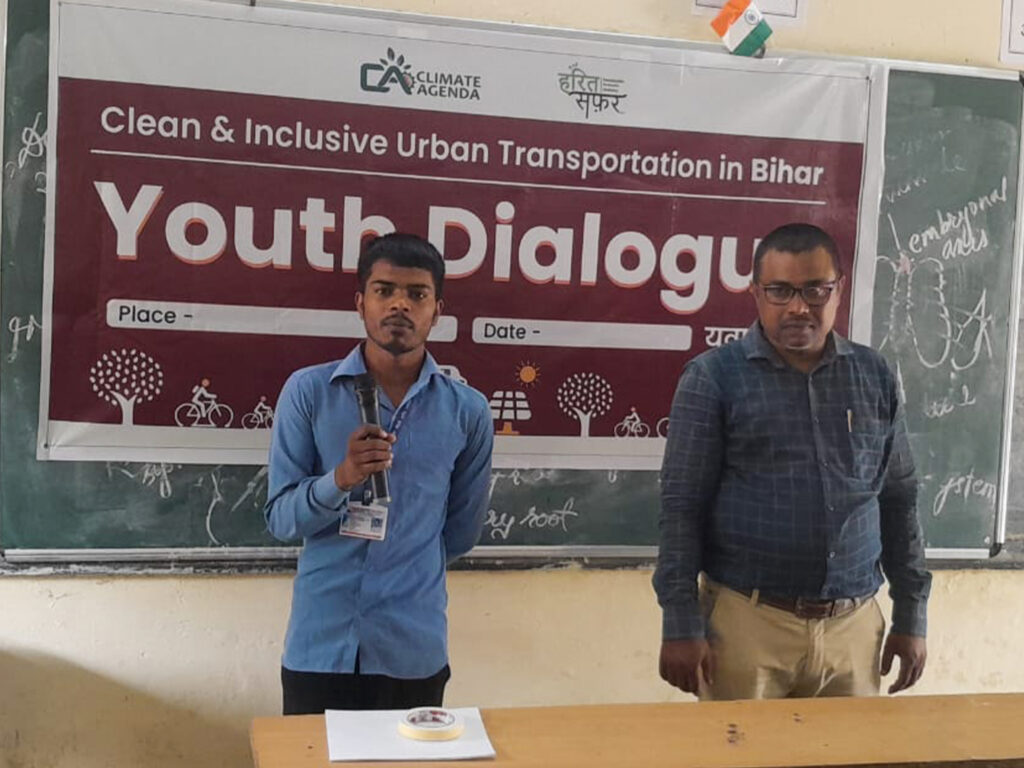Yuva Samvaad on
Clean and Inclusive
Urban Mobility
The Climate Agenda organised a Yuva Samvaad under Harit Safar initiatives at Patna Miller High School, where 70 enthusiastic students took part in a dialogue focused on Clean and Inclusive Urban Mobility Transport.
The aim of the session was to engage school students in meaningful discussions around climate change, particularly how urban transport contributes to environmental degradation. The program highlighted the negative impact of greenhouse gas emissions and their role in global warming, which results in extreme weather events such as heatwaves, floods, and erratic rainfall patterns. The students learned about these issues in relation to urban mobility, gaining insights into the environmental and health challenges posed by vehicles running on fossil fuels.
The interactive session encouraged students to voice their opinions on various aspects of urban mobility, such as the importance of cycling, walking for short distances, promoting electric and CNG buses, ensuring safer roads for women and girls, and advocating for dedicated lanes for cyclists and pedestrians. They used sticky notes to highlight the daily commuting problems they face, including road congestion, air and noise pollution, and the lack of safe infrastructure for non-motorized transport.
Moreover, the session shed light on the benefits of renewable energy vehicles, such as electric and CNG buses, and emphasised the need to expand these services across more city routes. Students recognized the cost advantages of using public electric buses over private transport options but also acknowledged the current lack of availability, leading to overcrowding and delays.
In his address, the school principal, Mr. Madan Vind, praised the initiative for raising awareness among students and emphasised the importance of collective efforts in protecting the environment. He highlighted how empowering the next generation with knowledge and responsibility can contribute significantly to ongoing environmental protection efforts.
Impact and Student Engagement
The session was a success, with 70 students actively participating and gaining a deeper understanding of how urban vehicles contribute to climate change. They left the session committed to using more sustainable transport options like bicycles and electric buses and expressed a desire to spread this awareness in their communities. This activity helped plant the seeds of environmental responsibility, encouraging young minds to become advocates for cleaner, greener urban mobility.
